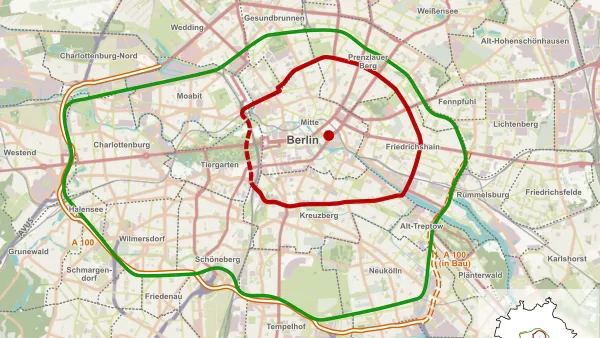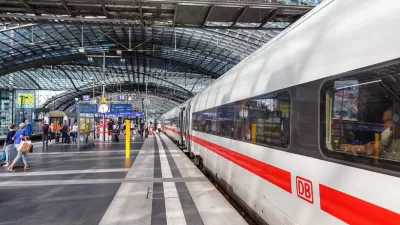Private financing of water systems goes at least as far back as ancient Rome. But as the number of people served by private water companies grows, some cities that have tasted privatization have found it lacking.
"Because water is so abundant—it rains from the sky, it collects in the earth—it feels like it should be free. The United Nations even recognized water as a human right in 2010," writes Renuka Rayasam. "But delivering safe water comes at a cost, and the fight over who should bear that cost has transformed water—and the merits and shortcomings of privatizing it—into an ideological battleground."
After experimenting with partial water privatization for fourteen years, residents of Berlin paid more than a billion euros to buy out the two private companies who were responsible for day-to-day management of its water system.
"Privatizing water systems can sometimes make sense, though, Richard G. Little, an infrastructure-policy consultant, told me....Private companies can provide more professional management, bring new investment into neglected public water systems, and provide funds for research."
FULL STORY: WHO SHOULD CONTROL OUR WATER

Planetizen Federal Action Tracker
A weekly monitor of how Trump’s orders and actions are impacting planners and planning in America.

Restaurant Patios Were a Pandemic Win — Why Were They so Hard to Keep?
Social distancing requirements and changes in travel patterns prompted cities to pilot new uses for street and sidewalk space. Then it got complicated.

Map: Where Senate Republicans Want to Sell Your Public Lands
For public land advocates, the Senate Republicans’ proposal to sell millions of acres of public land in the West is “the biggest fight of their careers.”

Maui's Vacation Rental Debate Turns Ugly
Verbal attacks, misinformation campaigns and fistfights plague a high-stakes debate to convert thousands of vacation rentals into long-term housing.

San Francisco Suspends Traffic Calming Amidst Record Deaths
Citing “a challenging fiscal landscape,” the city will cease the program on the heels of 42 traffic deaths, including 24 pedestrians.

California Homeless Arrests, Citations Spike After Ruling
An investigation reveals that anti-homeless actions increased up to 500% after Grants Pass v. Johnson — even in cities claiming no policy change.
Urban Design for Planners 1: Software Tools
This six-course series explores essential urban design concepts using open source software and equips planners with the tools they need to participate fully in the urban design process.
Planning for Universal Design
Learn the tools for implementing Universal Design in planning regulations.
Heyer Gruel & Associates PA
JM Goldson LLC
Custer County Colorado
City of Camden Redevelopment Agency
City of Astoria
Transportation Research & Education Center (TREC) at Portland State University
Camden Redevelopment Agency
City of Claremont
Municipality of Princeton (NJ)





























